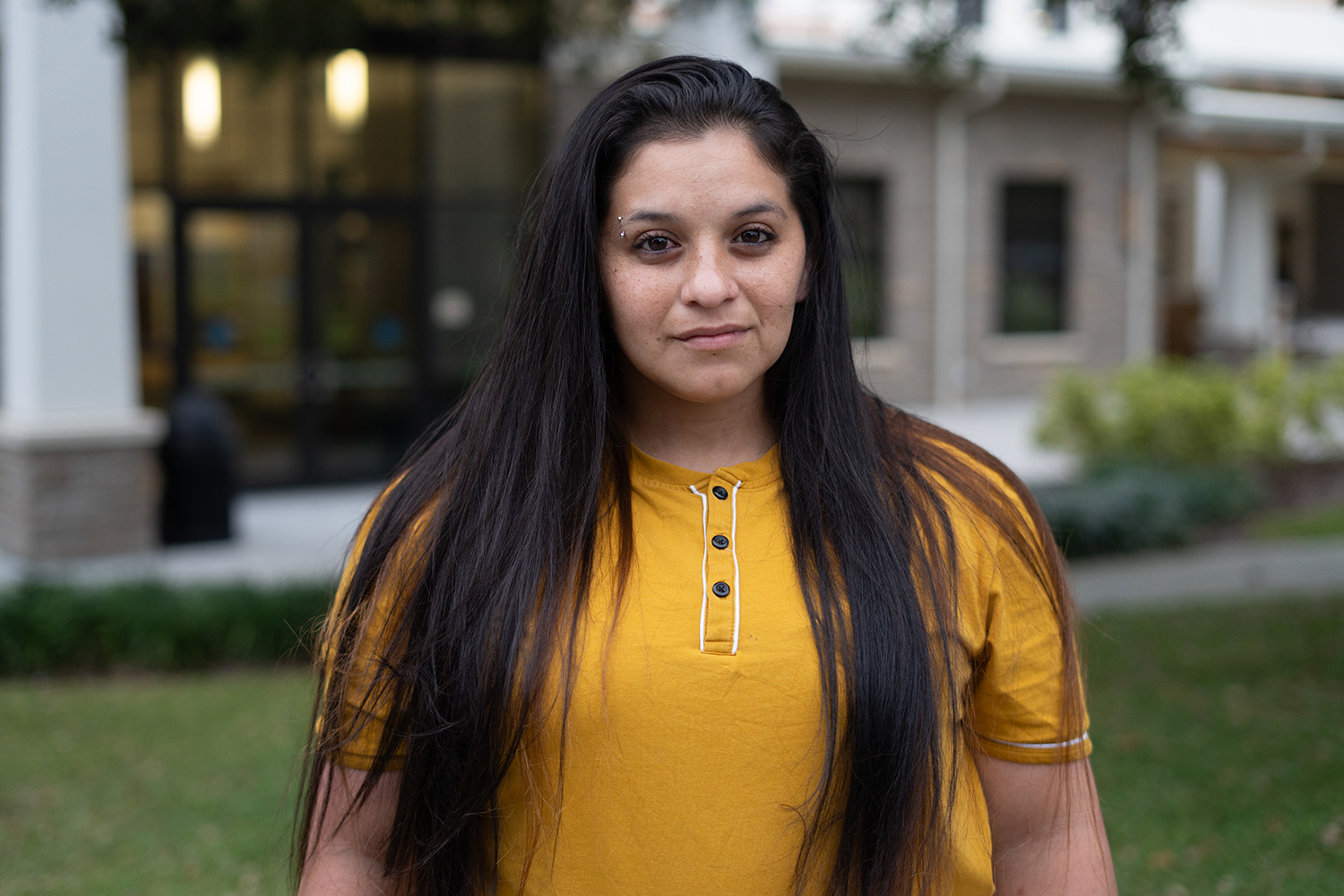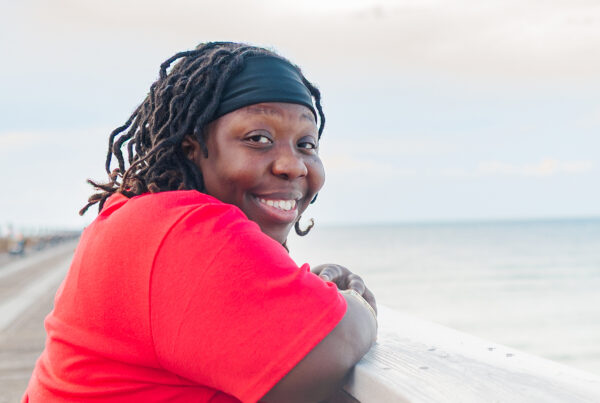Maribeth was nearly seven months pregnant when she was arrested and booked into Orlando’s Orange County jail for illegally entering and occupying a vacant mobile home. The judge set $350 in bail as a condition for her release, but Maribeth didn’t have the money. She asked her mother for help, but she couldn’t afford it either. The last person left to ask was the father of her unborn child. Although the pair are estranged, she hoped he would lend her a hand since it was an emergency. It turned out she was wrong. He refused.
Maribeth was overcome with a deluge of emotions. She was scared about giving birth in jail. She worried not knowing how long she would have to stay behind bars. She missed her young children who were staying with her mom. She felt helpless and abandoned. She was also livid that, as a pregnant woman, a few hundred dollars could prevent her from carrying her pregnancy to term in a safe environment versus the confines of a jail – places that are notorious for abhorrent living conditions and lack of medical resources and staff.
But most of all, Maribeth felt frustrated, angry, and disappointed with herself. Over the past decade, Maribeth struggled with substance use disorder and she had made great progress. With the help of her long-term partner – an undocumented immigrant – Maribeth stayed sober and out of jail for years. She was proud of the life they were building.
But then tragedy struck: her significant other was deported. Soon after, depression took hold of her life. She experienced emotional flashbacks that resurfaced traumatic memories from her childhood. Slowly, she started spending more time around people that had a negative influence on her behavior.
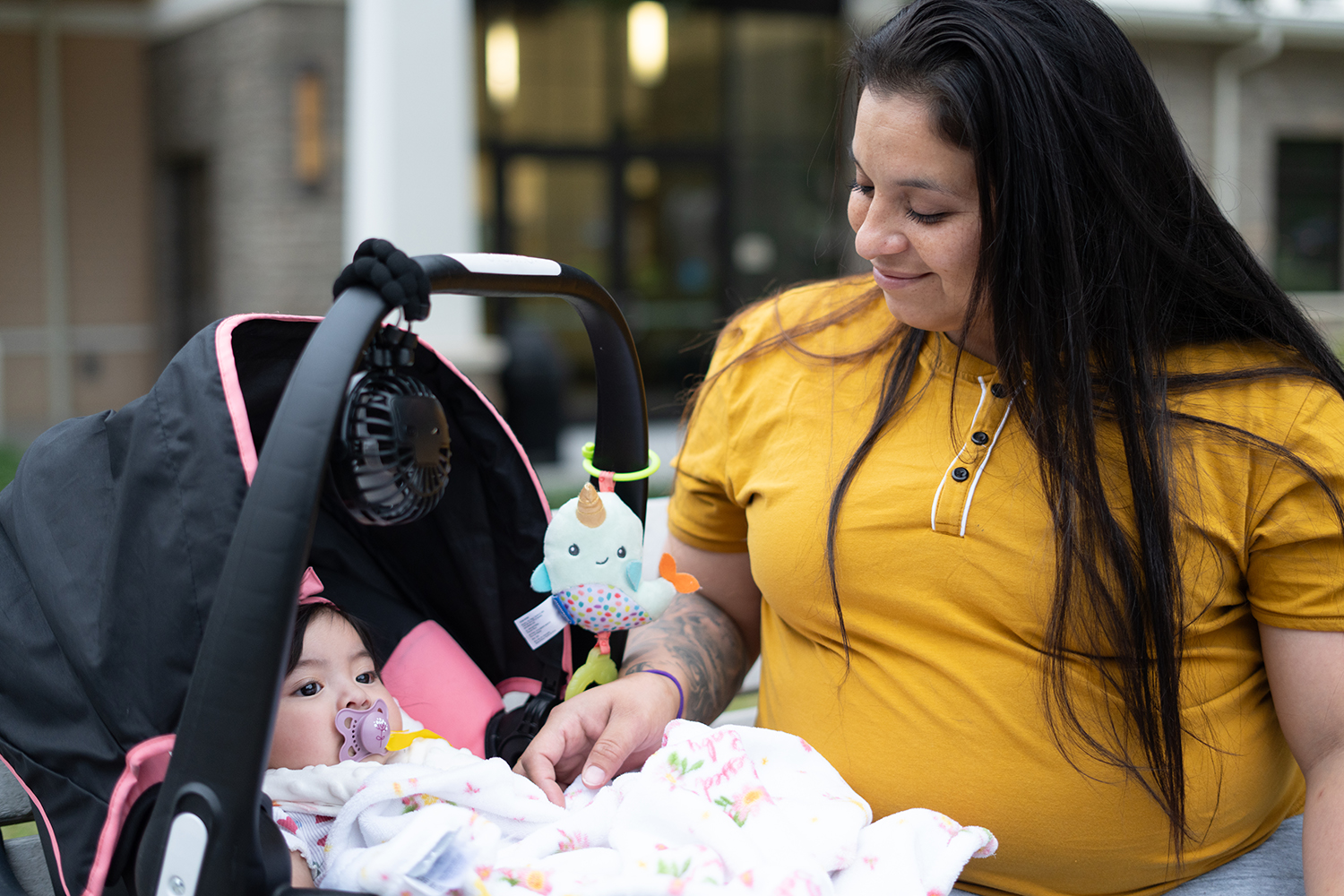
Maribeth is a long-time Orlando resident, second-generation Latino, and a mother of six kids. She is proud of her immigrant roots. As the youngest of five siblings, she knows firsthand the hard work it takes to raise a family as a single mother. “My dad was abusive to my mom. When I was a young kid I remember one day she grabbed us and all her stuff and we left,” she said. “It was hard. My mom didn’t have much money. She worked two jobs.”
Back inside Orange County jail, while correctional staff were doing her intake, Maribeth was feeling increasingly overwhelmed by the minute. In frustration, she lashed out at a nurse. A correctional officer immediately handcuffed her. “They were going to slam me into the ground when someone yelled out that I was pregnant,” Maribeth recalled.
Maribeth was told that she would be placed in punitive segregation for 30 days as a disciplinary measure. She was escorted to an individual holding cell. The officer who was taking her was walking fast and Maribeth was struggling to keep up. Before placing her inside, Maribeth lost balance and fell forward. “I remember the officer saying ‘Get up, you see what your dumb ass did,’” she said.
Maribeth was locked behind a metal door with only a small window to peer out of. The floor was concrete and she struggled to get up. She could hear the screams of people held in the nearby mental health unit from her cell.
Being in punitive segregation meant that Maribeth spent nearly 24 hours alone in her cell each day. A nurse came to check on her daily, as well as correctional staff, but otherwise Maribeth had minimal human interaction and outdoor recreation time. It also meant limited access to her lawyer. “I didn’t know who my lawyer was,” she said. “At first I felt depressed. I felt forgotten. I was upset with myself because I had given up that destructive lifestyle. I thought I changed.” Whenever she felt her baby kick her stomach, she was reminded that she wasn’t alone. “It’s just me and you baby,” she remembers whispering.
To help pass time, Maribeth asked a staff member for a pen and paper so she could draw – an activity that ended up being therapeutic. “I would draw for several hours. Time flew by,” she said. “I started drawing my kids’ names and animals. Whenever I ran out of ink or paper, I would ask for more and sometimes I drew on napkins.” She would also strike up conversation with correctional officers. “The nice officers talked to me and had conversations with me. They asked about my kids and I asked them questions.”
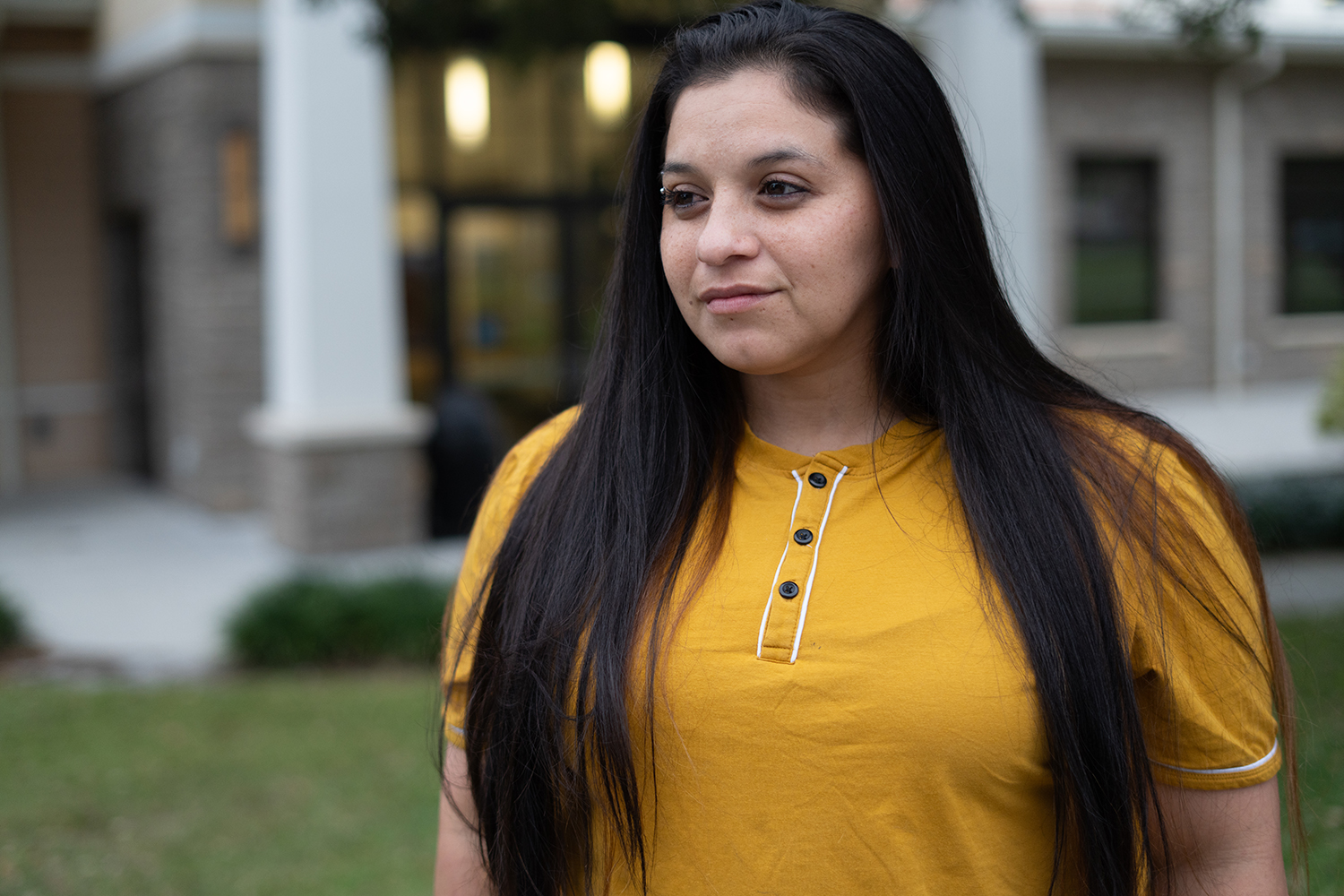
After one month, Maribeth was moved to the female general population. It was a difficult transition. By this point, she was around 32 weeks pregnant. She would be moved to the medical dormitory in a few weeks when she was 37 weeks, where she would remain until giving birth. Maribeth felt defeated. “At first I didn’t want to come out of my cell,” she said. “I didn’t want to accept that I would be having my baby in jail.” She tried her best to keep a positive attitude. “I didn’t know how I was going to get my bail paid, but I wasn’t going to have my baby here,” she recalled thinking to herself. “I kept thinking, I don’t want to have my baby here. I was set on that.”
In addition to receiving medical check-ups by nurses who work at the correctional facility, women who are pregnant in Orange County jail are given an extra mattress to sleep on and additional food during lunch and dinner. Still, jails are far from the ideal environment for pregnancy. In addition to the mental toll that being incarcerated takes on a person, their physical safety is also at risk. Maribeth recalled how some correctional staff yelled and berated her and other women. She said some staff could also be unpredictable and rough when handcuffing people.
Maintaining good hygiene was also difficult. She said that at one point she went two weeks without being given clean clothes. Another time, she wasn’t able to get the commissary items she bought, such as shampoo, deodorant, and extra soap, because the kiosk was broken.
“Pregnant women shouldn’t be incarcerated pretrial. The medical attention in jails isn’t good enough,” she said. “There aren’t enough nurses and sometimes they take their time. Some officers could be really mean.”
Pregnant women like Maribeth, who are accused but not convicted of crimes, face a slew of challenges when it comes to receiving medical attention in jails, such as the lack of prenatal care policies and inadequate medical resources. Although jails in Orange County have written policies in place for pregnant women, the care they’re able to provide is only as good as the infrastructure in place. In recent years, there have been several accounts of incarcerated pregnant women – including at least two in Florida – who have either died or lost their babies because they didn’t receive timely medical attention. Researchers say part of the problem is that there are no clear federal standards to ensure pregnant people are actually receiving the care they need and lack of training of jail and prison staff.
After nearly three months in jail and eight months pregnant, Maribeth finally had the breakthrough she had been praying for. She was talking to her attorney who mentioned how The Bail Project may be able to pay her bail and also provide access to supportive services. The next day Maribeth met Tito, a member of The Bail Project’s Florida team. He visited Maribeth in jail. “I’m going to hear you out,” Maribeth recalled Tito telling her. Maribeth confided in Tito. She told him she didn’t want to give birth in jail and that she would be open to him linking her to supportive services. “I told Tito all I knew I could do was give him my word.”
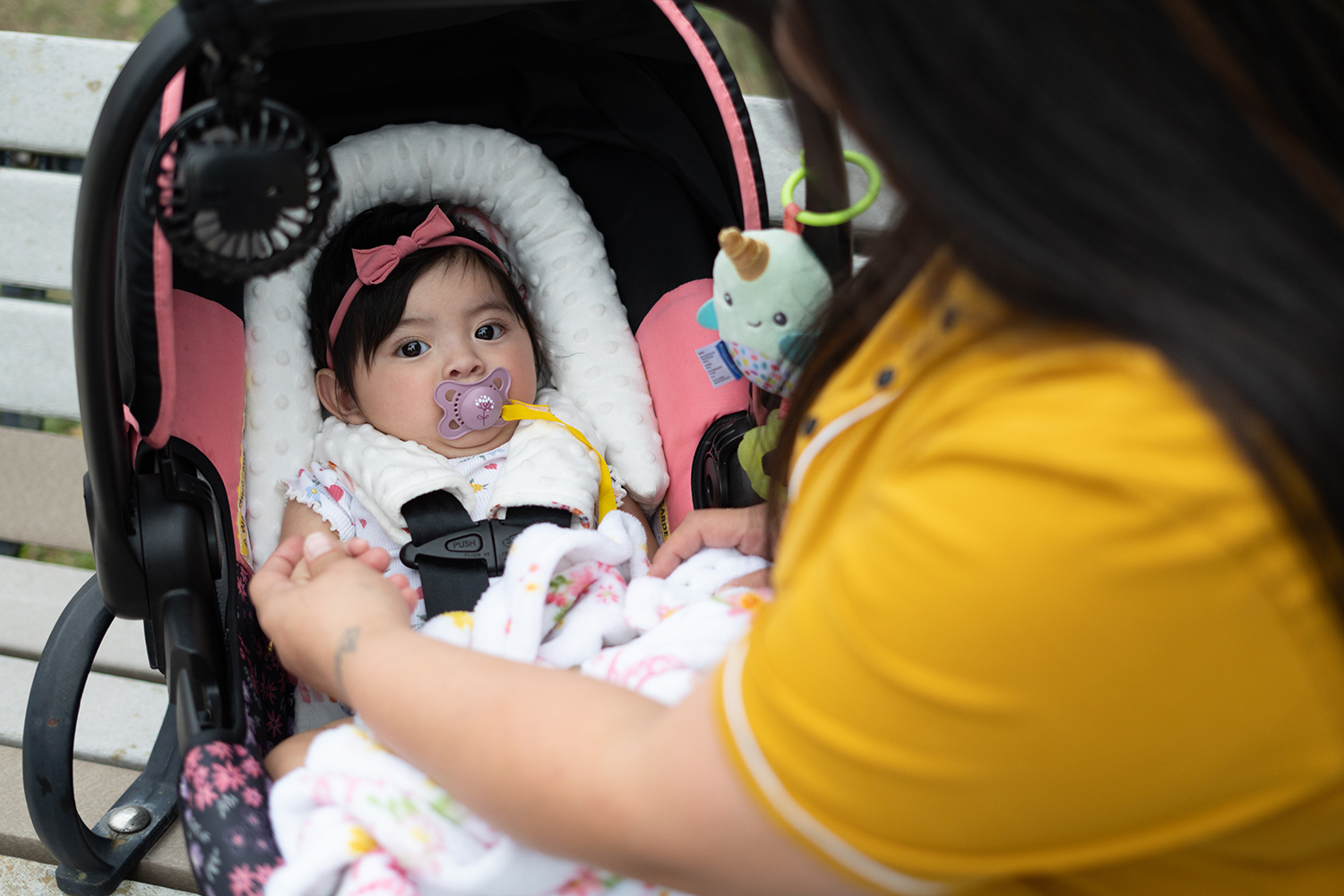
Tito quickly paid Maribeth’s bail. The following day, Maribeth was released from jail. After three long months, she was finally reunited with her children. She felt instant relief knowing she would be able to rest at home for the remainder of her pregnancy and give birth at a hospital. “I couldn’t believe it when I was told I was leaving.”
Maribeth is currently living with her mom and raising her children. She decided to take a plea deal in order to put the ordeal behind her and is currently on 24 months probation. She looks forward to finding a job soon and says the love she has for her children and Tito’s understanding played an indispensable role in getting her life back on track. “I feel seen and valued,” Maribeth said. “Tito gave me hope again. He was very helpful with everything, including doctor’s appointments, transportation and court date reminders.”
Above all, Maribeth credits the resilience and perseverance she found within herself for her success. “You have to want to get better. It takes time and means setting goals. I want to be able to come through for my kids. They’re so happy I’m around more. My grandma is proudest of me. She makes me fall into tears,” she said. “After I had my baby, I cried. It worked out how I wanted it to. I was happy.”
Thank you for reading. The Bail Project is a 501(c)(3) nonprofit organization that is only able to provide direct services and sustain systems change work through donations from people like you. If you found value in this article, please consider supporting our work today.







